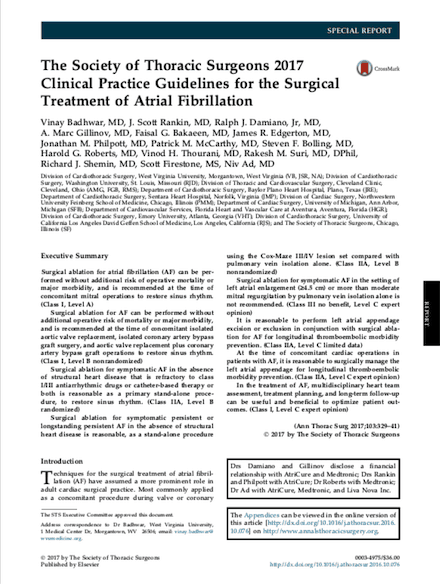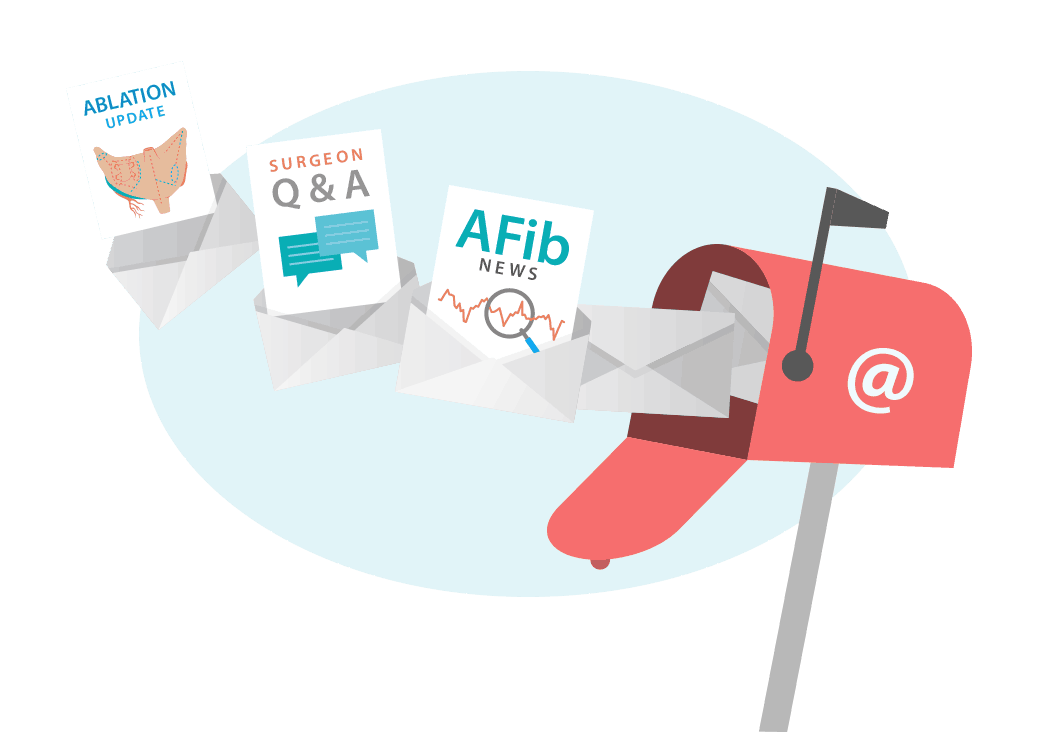“4 out of 5 patients who already have AFib and are already having open heart surgery for coronary, aortic or mitral valve surgery leave the operating room without their AFib getting treated. This lecture explains the reasons why I believe surgeons should treat atrial fibrillation when it occurs in patients who are undergoing cardiac surgery.”
-- Dr. James Cox, Inventor of the Cox-Maze Procedure,
Professor of Surgery, Northwestern Medicine
“There is no greater joy than enhancing the life of my patients. That said, the impact of using the Maze procedure during concomitant cases can not be understated. Being without symptoms like shortness of breath and heart palpitations is a new way of life for my patients.”
- Dr. Husam Balkhy, University of Chicago Medicine
Related Articles
Top 7 Reasons to Treat Atrial Fibrillation
Medical & Economic Burden of AFib
Page last updated: July 1, 2019


